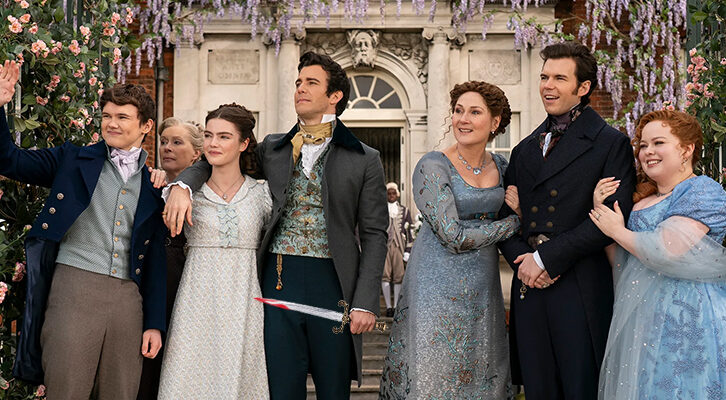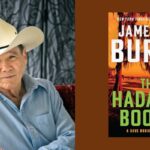
Learning to Love the Loneliness of Writing After My MFA
Sean Adams on the Community of Writers and
Its Accompanying Pressures
When I went to grad school, I brought Harold. Harold is my dog. He’s 80 pounds, a pit bull terrier mixed with something larger than a pit bull terrier, meaning most of the few pins on the Craigslist rental map that “allowed dogs” would not allow Harold. So I had to settle with renting a tiny standalone house a few miles from the university and, more importantly, outside the neighborhood where many of the other students in my program lived. This made me nervous. I worried that I would struggle to find my footing in the community.
Which is odd, considering that the solitude of it is what drew me to fiction writing in the first place. I’ve always enjoyed having the freedom to build out, refine, and reshape my ideas on my own, seeking input only when I myself deemed something ready to be seen. Writing fiction is one-pot creativity. You take your ideas into a room, you let them stew, and what comes out is not the starter for another thing that involves other ideas and other processes; it’s the thing, the whole thing.
The problem is it gets lonely. Crushingly so, at times. But crushing loneliness can be dealt with. Emergency protocols can be initiated, loved ones contacted. I’m privileged to have this vocabulary, but I have it nonetheless. What I struggle with more is the lesser loneliness of writing, when every word I put on the page is fine but not great, when every song I try and listen to fails to hook me, when I get up to do the dishes and find only a mug and a bowl in the sink, because I’ve already used this as an excuse to stop doing the thing I should be doing. It will feel like the days themselves are suffering from a low-grade sinus headache, and all I’ll want is to get out, and be around people whose mutual desire for escape will confirm that I’m okay, actually.
When you get a bunch of people with a mostly common goal together in one place, things can get a bit insular. Certain things start to feel a little too important.
This was what I sought from a writing community: not connections but a connection to something bigger, a network of people who “get it.” And despite Harold, despite the small standalone house, despite the distance, which some nights, on the way home from the bar on my bike, seemed to double or triple—despite it all, I found it. I experienced the elusive IRL writing community, experienced having a phone full of numbers to text when I needed reprieve from sitting by myself staring at a Word document, and places to go if not one of those texts yielded a concrete plan.
In my workshops, I received a lot of advice that I’m still not entirely sure what to do with. There often seemed to be a sinister trade off at play. The notes of my peers alerted me to my strengths and shortcomings as a writer and made me really consider what I wanted and didn’t want to do with my work. In exchange for this insight, they padlocked the very projects they were in reaction to. Many of the stories I worked on during those two years remain unfinished, residing on my hard drive as individual files or as part of a collection that I tried and failed to sell with an agent I don’t work with anymore. Upon graduating, I shipped a large box of marked up stories to my new address. When it was lost in transit, it felt like divine intervention.
Which is all to say, the things that occurred outside of class—the time spent in bars and crowded rooms filled with those who knew both the exhilaration and profound itchiness of writing—was not a neat side effect of attending a writing program. For me, it was everything. And for some time, I was content.
But as happens, when you get a bunch of people with a mostly common goal together in one place, things can get a bit insular. Certain things start to feel a little too important. There was the obvious stuff: who got what funding, who placed a story, who sold a book, who got a big advance. Agents would come through and meet with us. We’d give them our work and then rumors would spread: who did they email for more?
But among writers, every writer has to be a certain kind of writer, and your process better be magical as all hell.
Even worse were the little things, the discussions of word count goals, of when to write, for how long, how many drafts. Simple eccentricities were accentuated until they seemed definitive, perhaps even mystical. It’s an issue of the individual pushing against the community. Outside of a writing program, you can just be a ‘writer,’ and that’s it. You can admit that you sit there, putting words in a row. That it feels magical at times can be your little secret. But among writers, every writer has to be a certain kind of writer, and your process better be magical as all hell.
And when you’re surrounded by all these other magical writers, each espousing their way of doing things, it’s easy to get overwhelmed and worry that your way isn’t correct, that maybe you’re working on some lesser plane. Occasionally, I’d call someone on the outside, and just having to explain the context around what was eating at me, I’d see how stupid it all was. But among my peers, the context never needed to be explained. It was universal. That was the problem. We all knew.
To put it concisely, I went to graduate school searching for something that might cure my writing-related loneliness, and I left two years later more ready than ever to be alone.
My novel, The Heap, is set in a city all packed inside of a giant building, called Los Verticalés, and also in the city that forms around the site of its collapse, called CamperTown. It’s about greed. It’s about revenge. It’s about siblings struggling to connect, and bureaucracy, and eccentric billionaires, and who gets a window. But really it’s about communities, about how lively and exciting they can be, and also how sometimes, the focus can be so singular that it warps one’s view of the world.
It’s been three years since I finished grad school. I live just under two hours away from the university now, but it might as well be another world. We moved here for my wife’s work. She’s a librarian at a community college. There are many smaller schools in the area, and I’ve thought about putting together a CV and trying to adjunct. But I never do. I work from home, writing product descriptions for an online store and occasionally for those weird deal segments you see on morning shows. I have no set hours, only deadlines, which is ideal for finding time to write. I don’t have a community of other writers here. And that’s okay, for now.
Sean Adams
Sean Adams is a graduate of Bennington College and the Iowa Writers' Workshop. His fiction has appeared in Electric Literature's Recommended Reading, The Magazine of Fantasy & Science Fiction, the Normal School, Vol. 1 Brooklyn, the Arkansas International, and elsewhere. He lives in Des Moines, Iowa with his wife, Emma, and their various pets.



















